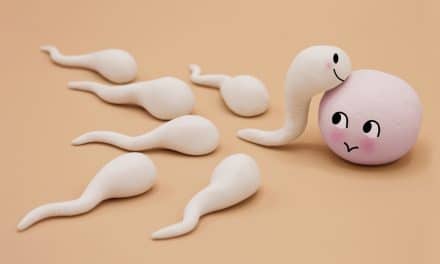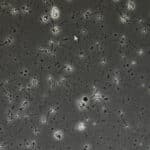If you have been advised to consider egg donation treatment, the news may have had a strong emotional impact. This is completely understandable, as it means giving up the use of your own eggs, which can trigger a sense of loss known as ‘genetic grief’, and coming to terms with it may take some time.
Therefore, it is essential to give yourself time and to share any doubts or concerns you may have. If you feel you need emotional support or more detailed information, don’t hesitate to ask for it. At our clinic, we have a dedicated Egg Donation and Reception Unit made up of a multidisciplinary team of doctors, biologists, nurses, geneticists and psychologists who specialise in this field.
Every patient is different, but there are certain key aspects that tend to be of interest to most women who undergo this treatment. That is why we have asked Sandra García Lumbreras, head of our Psychology Unit, along with Dr Marina Solsona and Dr Elisabet Clua, both specialists in reproductive medicine at Dexeus Mujer, to answer some of the most frequently asked questions in this post.
What is the success rate in these cases?
Treatments using donated eggs have a significantly higher success rate than IVF cycles using the patient’s own eggs. That is because the donated eggs come from young women aged between 18 and 35, which is when egg quality is at its highest. This improves one of the most common causes of infertility. However, to understand your personal chances of achieving a full-term pregnancy, we recommend undergoing an individual assessment.
What information will I receive about my donor?
Donors are always selected based on physical resemblance to the recipient. However, as egg donation is an anonymous process, only the donor’s age and blood group will be disclosed. Similarly, no information about the recipient is ever shared with the donor.
What tests are carried out on the donor?
At Dexeus Mujer, we carry out a thorough screening process that includes psychological, medical and genetic assessments, as well as a review of the donor’s medical and family history (up to three generations). Medical tests include a physical and gynaecological examination, vaginal ultrasound, smear test, vaginal swabs and a full blood panel. This includes a hormone profile, blood group, serological tests (for HIV, hepatitis B and C, syphilis) and genetic screening.
Is genetic testing also carried out?
Yes. The egg donor undergoes a karyotype test (which assesses chromosome number and structure) and a carrier screening test to rule out recessive conditions such as cystic fibrosis, thalassaemia, congenital deafness, spinal muscular atrophy, and others. This genetic screening is carried out both on the donor and the male partner (or sperm donor, if applicable), and helps ensure that neither is a healthy carrier of the same pathogenic variants. Therefore, donor selection is based not only on physical similarity but also on genetic compatibility.
What tests will I need to undergo?
The initial work-up includes a general blood panel with serology (HIV, hepatitis B and C, syphilis, rubella, toxoplasmosis, cytomegalovirus, and varicella) and a thyroid function panel, in addition to a gynaecological ultrasound. Your gynaecological check-up will also be updated with a smear test and breast screening if needed (for example, for women over 40 or earlier if there’s a relevant family history).
Depending on your medical background and the results of these tests, additional tests may be recommended, such as an electrocardiogram, an endometrial assessment, etc.
What about my partner? What tests will he need?
If you are undergoing treatment with a male partner, he will also need to have a blood test, including serology and a karyotype, as well as a semen analysis to assess sperm quality. If the results indicate abnormalities or if the team believes a further assessment is needed, he may be referred to our Andrology Unit for further tests. At Dexeus Mujer, we have dedicated specialists in andrology and a Male Sexual Health Unit.
How long does the process take?
Once all the required documentation and test results have been submitted and the donor search is underway, the waiting time can range from 1 to 3 months. At our centre, 75% of patients are ready to schedule a frozen embryo transfer within two months of starting the donor search.
Is endometrial preparation complicated?
Endometrial preparation for embryo transfer involves hormonal treatment (with oestrogen taken orally, via gel or patches, plus vaginal progesterone) or can be done in a natural cycle (with vaginal progesterone only). The type of treatment plan is chosen based on the patient’s characteristics (menstrual cycle regularity, obstetric history, etc.). The treatment typically lasts between 2 and 3 weeks before the embryo transfer.
How many embryos can I transfer?
We offer several options within our egg donation programme (single attempt, two attempts, etc.). Based on your profile and preferences, our Egg Donation Programme team will advise you on the most suitable option for your reproductive goals and personal circumstances.
Emotional support and advice
Research and clinical experience show that the mother-child bond begins during pregnancy. From the moment you decide to start the egg donation treatment, that child will be yours, and it is important that you feel that way. Furthermore, while genetics do play a role, they are not the whole story. Studies have shown that the environment in which babies grow and the experiences they live also influence gene expression. The love they receive, the values they are taught and their upbringing all shape their personality. When it comes to making the decision about whether to proceed with egg donation, give yourself time to grieve and process it, without rushing or feeling pressured. That said, we recommend not postponing it for too long, as staying in a prolonged state of indecision can lead to increased anxiety, emotional fatigue, and even strain your relationship with your partner.















